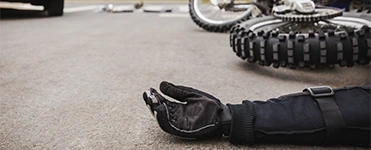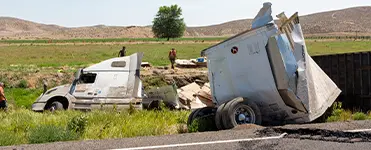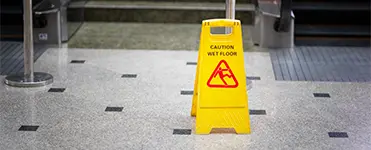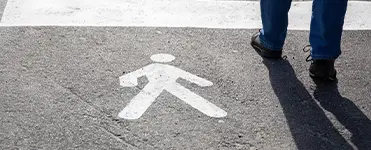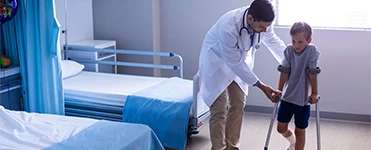Millions of Californians rely on rental properties to provide them with a safe and comfortable place to call home. However, accidents can happen anywhere, and when they occur on a rented property, the question of liability often arises. When you’re injured on someone else’s property, the legal concept of premises liability comes into play, and it’s important to understand your rights and potential recourse.
California is renowned for its firm legal framework, and when it comes to premises liability claims, the state has specific laws and regulations in place to protect tenants and visitors from dangerous conditions. According to the National Safety Council (NSC), fatal accidents at home have increased 320% since 1999, amounting to more than 128,000 deaths nationally just in 2021. Likewise, the California Office of Statewide Health Planning and Development reported 235,163 non-fatal injury hospitalizations in California due to various accidents in 2015, many of which were likely linked to property conditions.
In today’s blog, we will delve into the intricacies of California premises liability and address the burning question: Can you sue your landlord if you get hurt on their property? We will discuss:
- Law and premises liability in California
- Common types of tenant accidents in California
- Landlord responsibilities and legal obligations
- Pursuing a premises liability case with an attorney in California
Law and Premises Liability in California
Premises liability laws in California are the set of legal principles that dictate the responsibilities of property owners, landlords, and tenants when it comes to maintaining safe and secure spaces free from dangerous conditions. These laws are designed to protect individuals who are legally on someone else’s property, whether as tenants, visitors, or customers, by holding property owners accountable for maintaining a safe environment.
Some of the key aspects of these personal injury claims are:
Duty of Care
Property owners, including landlords, owe a duty of care to individuals who enter their premises. This includes the responsibility to maintain the property in a reasonably safe condition and to address any known hazards or risks.
Reasonable Care
Property owners must exercise reasonable care to prevent premises liability accidents to those on their property. This means taking precautions to identify and rectify potential dangers and maintaining the property in safe and acceptable conditions.
Invitees, Licensees, and Trespassers
The level of care owed by property owners may vary depending on the status of the individual on the property. Invitees, who are expressly or impliedly invited onto the property, are owed the highest duty of care. Licensees, such as social guests, also receive a certain level of care. Trespassers, on the other hand, are generally not owed a duty of care, except in specific situations, such as when there is a known presence of children.
Landlord’s Responsibilities
Landlords are responsible for maintaining common areas, making necessary repairs to the property, and ensuring it meets habitability standards. A reasonable person should also address known hazards and provide proper security measures, where applicable.
Tenant Responsibilities
Tenants are responsible for maintaining the safety of their individual rental units. They should promptly report any maintenance issues to the landlord and refrain from causing property damage that could create hazards for themselves or others.
Proving Negligence
To succeed in a California premises liability case, the injured person must generally prove that the property owner or occupier was negligent, that the negligence caused the injury and medical bills, and that the plaintiff was lawfully present on the property.
Statute of Limitations
California law sets a time limit, known as the statute of limitations, for filing premises liability lawsuits. Typically, an injured person has two years from the date of the injury to file a lawsuit, but this timeframe can vary depending on the specifics of their case.
Comparative Negligence
California follows a comparative negligence system, which means that if the injured party is found partially responsible for their injuries, their compensation may be reduced accordingly.
It’s important to note that premises liability laws can be complex, and the specifics of each case may vary. If you’ve been injured on someone else’s property in California and believe it was due to the property owner’s negligence, it’s advisable to consult with a qualified premises liability attorney who specializes in personal injury law for legal advice and to understand your rights and options.

Common Types of Tenant Accidents in California
Tenants in California can encounter a variety of accidents and injuries while residing in rental properties. Some of the common types of tenant accidents in California include:
- Slip and Falls: Slip and fall accidents are among the most frequent types of injuries for tenants. They can occur due to wet or slippery floors, uneven or damaged walkways, or poorly maintained stairs and handrails.
- Trip and Falls: These accidents often result from dangerous conditions like loose carpets, uneven flooring, or objects left in walkways, causing tenants to trip and fall, which can result in serious medical bills.
- Inadequate Lighting: Poorly lit areas, both inside and outside the rental property, can increase the risk of accidents or injured persons, especially during nighttime hours.
- Defective Appliances: Malfunctioning or poorly maintained appliances, such as stoves, ovens, water heaters, and electrical systems, can lead to fires, electrical shocks, and burns.
- Structural Defects: Structural problems in the rental unit, such as unstable balconies, leaking roofs, or ceiling collapses, can pose significant risks to tenant safety.
- Inadequate Security: Lack of proper security measures, like broken locks, insufficient lighting, or unsecured entryways, can make tenants vulnerable to crimes such as burglaries, assaults, and vandalism.
- Carbon Monoxide Poisoning: Faulty heating systems, gas leaks, or inadequate ventilation can lead to carbon monoxide buildup in the rental property, which poses a silent but life-threatening hazard to tenants.
- Mold and Pest Infestations: Mold growth and infestations of pests, like rodents or insects, can create health hazards and allergic reactions for tenants.
- Dog Bites: If a tenant’s neighbor or landlord allows dangerous or aggressive dogs on the premises without taking appropriate safety measures, tenants may be at risk of dog attacks and bites.
- Electrical Hazards: Faulty wiring, exposed electrical components, and poorly maintained electrical systems can lead to electrical shocks, fires, and electrocutions.
- Hazardous Materials: Exposure to hazardous materials and other unsafe conditions, such as lead paint or asbestos, which are commonly found in older buildings, can result in serious health issues for tenants.
- Inadequate Maintenance: When landlords neglect their duty to maintain the property, tenants may experience accidents and injuries due to deteriorating conditions, such as loose handrails, broken windows, or plumbing issues.
Landlord Responsibilities & Legal Obligations
Landlords in California have specific legal responsibilities and strict liability that they must adhere to in order to maintain safe conditions and habitable rental properties, protecting the rights of tenants. These responsibilities and obligations are outlined in California state law.
Some of the key landlord responsibilities and legal obligations against potential hazards in our state include:
- Habitability: Landlords are legally obligated to provide tenants with rental units that are safe, habitable, and in good repair. This includes ensuring that the property is structurally sound, free from serious hazards, and has adequate heating, plumbing, and electrical systems.
- Compliance with Building and Safety Codes: Landlords must comply with all applicable state and local building and safety codes. This means maintaining the property in accordance with the established standards for safety and habitability.
- Repairs and Maintenance: Landlords are responsible for making necessary repairs and conducting regular maintenance on the rental property. This includes fixing issuing warning signs, plumbing issues, addressing electrical problems, and maintaining common areas.
- Security: Landlords should provide adequate security measures, such as proper locks and lighting, to help protect tenants from foreseeable criminal acts. Failure to do so can result in landlord liability in case of security-related incidents.
- Lead-Based Paint: If a rental property was built before 1978, landlords must disclose any known lead-based paint hazards and provide tenants with required lead hazard pamphlets.
- Water Supply: Landlords must ensure that the rental unit has a potable water supply that meets local health standards. They are also responsible for maintaining the plumbing system and promptly addressing water-related issues.
- Emergency Repairs: Landlords must respond to emergency repair requests promptly. These include issues that affect the tenant’s safety, such as gas leaks, electrical failures, and major plumbing problems.
- Notice for Entry: Before entering a tenant’s rental unit, landlords must provide reasonable notice, typically 24 hours, except in the case of emergencies. Proper notice is required even if the landlord is entering for necessary repairs or maintenance.
- Return of Security Deposit: When a tenant moves out, landlords must return the tenant’s security deposit, less any legitimate deductions, within a specific timeframe and with an itemized list of deductions.
- Anti-Discrimination Laws: Landlords are prohibited from discriminating against tenants based on factors such as race, color, religion, sex, national origin, disability, or familial status. California law provides strong protections against housing discrimination.
- Rent Control Laws: In areas with rent control ordinances, landlords must adhere to rent control regulations that may limit rent increases and provide additional tenant protections.
- Rental Agreements: Landlords should use written rental agreements or leases that outline the terms of the tenancy, including rent, security deposit, and rules and regulations. They must provide a copy of the rental agreement to the tenant.
- Privacy Rights: Landlords must respect tenants’ privacy rights and not engage in harassment or retaliation. They should follow proper legal procedures for eviction and disputes.
Both landlords and tenants in California need to be aware of these legal responsibilities and obligations to ensure safe environments and a legally compliant landlord-tenant relationship. If tenants believe that their landlord is not meeting these obligations, they may have grounds for legal action or seeking remedies with a personal injury lawyer.
Pursuing a California Premises Liability Case
Pursuing a California premises liability case against a negligent property owner in California involves a series of steps, from gathering evidence to filing a lawsuit if necessary. Here’s a general guide on how to pursue such a case with a personal injury lawyer:
- Seek Medical Care: If you’ve been injured due to unsafe conditions on the rental property, your health and well-being should be the top priority. Seek immediate medical attention, even for seemingly minor injuries, as medical records will be crucial in your case.
- Report the Incident: Report the incident to the landlord or property management company as soon as possible. This documentation can serve as evidence of the landlord’s knowledge of the situation.
- Document the Scene and Gather Evidence: If possible, document the scene of the accident. Take photographs or videos of the hazardous condition, your injuries, and any relevant details, such as the date and time. Collect any evidence related to the incident and the property’s condition. This may include witness statements, accident reports, maintenance records, and communication with the landlord regarding the issue.
- Consult with an Attorney: Contact a qualified personal injury attorney with experience in premises liability cases. An attorney can assess the strength of your case, explain your legal rights, and guide you through the process. Your attorney will conduct a thorough investigation to determine the extent of the landlord’s negligence and gather evidence to support your claim.
- Negotiation: Your attorney may attempt to negotiate with the landlord or their insurance company for a fair settlement. Many premises liability cases are resolved through negotiations without going to court. If negotiations do not lead to a satisfactory resolution, your attorney may file a lawsuit against the landlord. This initiates the formal legal process, and the case will proceed through the court system.
Consulting with an experienced attorney can help provide legal guidance tailored to your specific case. Premises liability cases can be complex, and having legal representation ensures that your rights are protected and that you have the best chance of securing fair compensation for your injuries and damages.
Ayuda California Can Help You
At Ayuda California, we know how to prove a premise liability case in your favor. We are ready to help you against the negligent landlord or property owner who caused your accident! We are a professional and dedicated team of California premises liability lawyers who can talk in both Spanish and English — and we are available 24/7 to assist you with anything.
We are more than just legal representatives for our clients. We care for you and embrace your pain as an injury victim. This enables us to build powerful cases against unsafe property conditions that lead you to win the maximum financial compensation and justice you deserve. Trust Ayuda California to win your case. Call us now!





